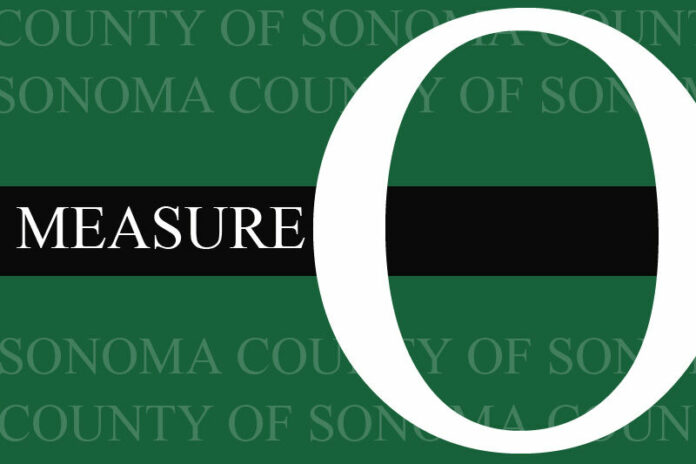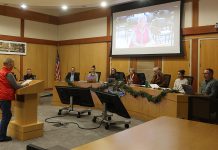Measure O — the Sonoma County quarter-cent sales tax proposed to fund mental health and addiction services and facilities for children, adults, seniors, veterans and those experiencing homelessness — appears to be passing as of Wednesday morning, Nov. 4.
According to the Sonoma County Registrar of Voters, the measure had 133,966 (68.98%) “yes” votes and 60,420 (31.02% ) “no” votes on Wednesday, with 100% of the precincts reporting. It is important to note that the votes will not be finalized for a month — 30 days, and Sonoma County must certify the votes by Dec. 3.
As the eight o’clock hour broke there weren’t any immediate county polling returns. Around 8:15 p.m. polling returns started trickling in and the measure was leading in “yes” votes.
If passed, the measure will increase the sales tax by one-fourth of one cent per dollar (0.25%) on all taxable sales in the county for 10 years in order to fund mental health and addiction services.
According to the Sonoma County Auditor’s Fiscal Impact Statement, the tax will yield approximately $25 million each year for mental health and homeless services and facilities.
The net proceeds will /would have been be allocated to five program categories:
● 22% ($500,000) for behavioral health facilities, including: residential care facilities, transitional housing for individuals, discharging from crisis services, psychiatric health facility and operations.
● 44% ($11,000,000) for emergency psychiatric/crisis services, including: expansion of the Mobile Support Team / crisis assessment, prevention and education, crisis stabilization unit, residential crisis services, adult inpatient hospital services.
● 18% ($4,500,000) for mental health and substance use disorder outpatient services, including: mental health services and children’s shelters, mental health services for children and youth, services to support residential care facilities, permanent supportive housing and other housing, substance use disorder services expansion.
● 14% ($3,500,000) for homeless behavioral health/care coordination, including: behavioral health services for individuals who are homeless, care coordination for high needs homeless.
● 2% ($500,000) for transitional and supportive housing, including the supportive housing pool.
Proponents of the ballot measure said it will provide Sonoma County residents with key essential services during a critical time, a period where more and more individuals are dealing with homelessness, mental health concerns and impacts from COVID-19.
Official supporters of the initiative include Sonoma County Third District Supervisor Shirlee Zane, Congressman Mike Thompson, Santa Rosa Junior College President Frank Chong, Sonoma County Superintendent of Schools Steven Herrington and Windsor Town Councilmember Esther Lemus.
“The money goes toward things like crisis services, suicide prevention, mobile support team, lots and lots of different programs, peer counseling, case assessment, etc. It really does make our community healthier and as somebody who survived the suicide of my husband who didn’t get the care he needed from Kaiser, I can tell you that there is a tremendous amount of suffering in our county because we don’t provide enough in terms of mental health services,” Zane told Sonoma West Publishers in October.
Those against the tax argued that now is not the time for the addition of higher taxes in an era of “uncertainty and chaos.”
Daniel Drummond, the executive director of the Sonoma County Taxpayers’ Association was listed formally as “against” the measure in the county ballot information provided by the Sonoma County Registrar of Voters.









